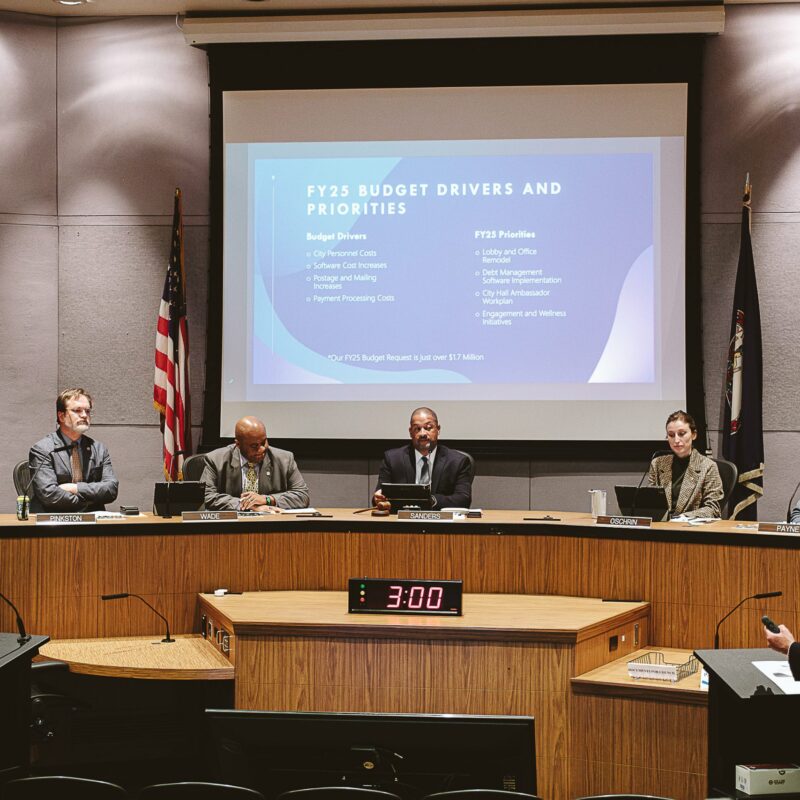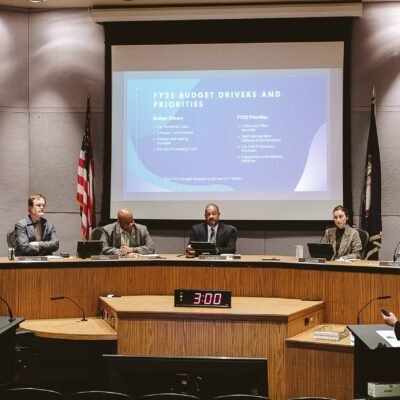This updated and expanded story includes reporting from a previous, shorter piece on Dominion’s pipeline lawsuits posted late last month.
This week, courts in Nelson and Augusta counties are expected to start delivering Dominion Resource’s Christmas present to landowners there: the first of dozens of lawsuits, announced last month, against holdout residents who since May have refused to let the energy company survey their land for its proposed 550-mile Atlantic Coast Pipeline, which would transmit fracked natural gas from West Virginia to southern North Carolina.
The company filed 20 suits in Nelson County and 27 more in Augusta County on December 18 and 19, and Dominion spokesman Jim Norvelle said affected landowners are likely to receive notices in early January. The legal action cites a Virginia statute that allows utilities—including private companies like Dominion—to conduct surveys without landowner permission in order to satisfy regulatory requirements. Eminent domain laws also mean the company can eventually seize land for its pipeline right-of-way, so long as it compensates owners.
There are more lawsuits to come in both counties. Norvelle confirmed that the company intends to file suit against a total of 122 people in Nelson and 56 in Augusta who have denied Dominion access to their land during the planning stages of the company’s natural gas pipeline project.
“This is a lot of paperwork to process; hence, the stages,” Norvelle said.
Among the initial score of Nelson County defendants is the Shannon Farm Association, a cooperative intentional community of about 100 people who co-own 518 acres in Afton. Association President Helen Kimble said that like others in the area, they first learned of the pipeline project in May, when Dominion began sending out survey request letters. The community decided together they would push back, she said, and now an attorney will represent the entire group.
Agreeing to a 42″ buried pipe on their property doesn’t square with their values of stewardship, said Kimble. Shannon Farm residents go to great lengths to minimize impacts on the land, including living in clusters to allow for as much open space as possible. Dominion, she said, “is basically undoing everything we’ve been trying to do for 40 years—to protect the woods as much as possible, minimize roads, minimize infrastructure. That’s a pretty big jolt for us.”
And personally, Kimble said she’s opposed to the idea of a gas pipeline altogether.
“This seems to be cooperating with fracking and the rush to replace coal with gas, which seems very shortsighted,” she said. “We can’t afford to make this mistake again. We have to get clean. It has to be renewable energy and it has to be now, and as an individual, I can’t cooperate with something that goes against my values.”
Jeffrey Row and his wife Nancy just sold their 80 acres off of Davis Creek Road in Nelson County last month, but they’ve still been named as defendants by Dominion. If the mix-up complicates the legal process for the company, that’s fine by Row.
“From my perspective, the more I can be a fly in the ointment, the better,” he said. He doesn’t want to see the pipeline come through Nelson, whether he lives there or not. “I don’t agree that a company like Dominion should have the ability to take my property or whoever’s property it is,” he said.
The landowners of Nelson and Augusta counties who share Row’s and Kimble’s feelings on the pipeline make up the vast majority of the holdouts in all three states affected by the project. Norvelle said Dominion intends to sue a total of 245 individuals who have denied the company access along the entire proposed pipeline route. There are no planned suits in West Virginia and only five in North Carolina, said Norvelle. That means more than 70 percent of the total number of suits will involve Nelson and Augusta landowners.
Why such staunch opposition among Blue Ridge-area landowners? Kimble said she thinks rural Nelson County in particular is full of people who care deeply about the place they live, whether they were born and never left, or came seeking a place apart, as she did in 1989.
“Most of the people who come here are looking to live lightly on the land and protect it,” said Kimble. “That’s exactly why we all live here—because we love the land.”
But Norvelle emphasized that the holdouts represent a minority of property owners along the 550-mile route. The “vast majority,” he said, see eye-to-eye with the company and agree that the best way to map out the route is by allowing surveyors to examine it.
“The only person who knows the property the best is the landowner who can help us plan the best route with the least impact to the environment, historic and cultural resources,” he said.
Those who have been named defendants will have 21 days to respond once they receive notice of Dominion’s suits, said Norvelle. Court dates will be set later if they’re needed, he said. The company, which is in the midst of soliciting approval of the $5 billion project from the Federal Energy Regulatory Commission, is leaving the door open to negotiation until then.
“We would welcome any of the landowners who will be notified to grant us permission and forgo the court date,” said Norvelle.





